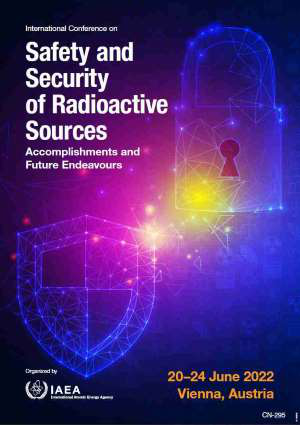Speaker
Description
Nuclear safety and security of radioactive materials is ultimately dependant on individuals, policy makers, regulators, employees and to some extent members of the public. Nuclear security culture, its promotion, enhancement is refined with a view of establishing international guidance and raising the level of awareness of all concerned parties. The nuclear industry is a broad and diverse sector that includes a wide variety of organisations that use radioactive materials for applications in medicine, research, education, agriculture, power generation, mining and industry.
It’s however important to note that effective and balanced public reporting and communication on key nuclear security information about the regulatory oversight create resilient nuclear security culture and sustainable national nuclear regimes. It promotes awareness, safety of the people and the environment, enhances compliance and service delivery, promotes accountability and public acceptance.
Effective communication with stakeholders ultimately determines the fate of the nuclear sector not perhaps when measured over short term but certainly in the long term as the publics make their own assessment. The question is; Do politicians, the public, stakeholders believe nuclear energy is safe, secure and necessary or they are more concerned about whether they trust the nuclear sector and associated government departments and regulators and the information they openly provide?
For the sustainability and effectiveness of national regimes, all key stakeholders need to report on their strategic objectives and reflect on how they impact on the public and environment with a clear oversight of nuclear safety and security performance. They also need to provide information to inform discussions on the wellbeing of their people, society and environment and lastly ensure effective internal communication with internal stakeholders to ensure that such personnel understand the organisations objectives, policies and procedures clearly. This degree of openness in communication influences the organisations security culture, develops the state’s reputation as a socially responsible actor and contributes to the sustainability of all nuclear enterprises through improved transparency but while protecting the sensitive nuclear information like technical data, blue prints, designs and security procedures.
Uganda possesses an interim radioactive sources store that became operational in 2019. The community first rejected it due to lack of enough public awareness and community involvement during the initial stages of the project. The approach used in communication was a top down approach which completely failed at that time. The regulatory body however improved on public awareness, changed the communications strategy and involved the key stakeholders in planning and there is definitely a positive change and public acceptance.
By law in Uganda, The Atomic Energy Act No 24 of 2008(AEA,2008) 9(n) authorises the regulator to establish appropriate mechanisms to inform the public about the regulatory processes and the radiation safety aspects of regulated practises. Atomic Energy Council Uganda carries out public awareness activities through; Publications on safety and security of radioactive sources, Stakeholder engagements and trainings, talk shows and Social media radiation safety campaigns. This has improved stakeholder communication, increased trust, credibility, reduced risk and led to improved transparency.
The presentation will give an overview of the role of public awareness in sustainability and effectiveness of national nuclear regimes highlighting the success story in Uganda, challenges, tactics used and lessons learnt.
| Country OR Intl. Organization | Uganda |
|---|

